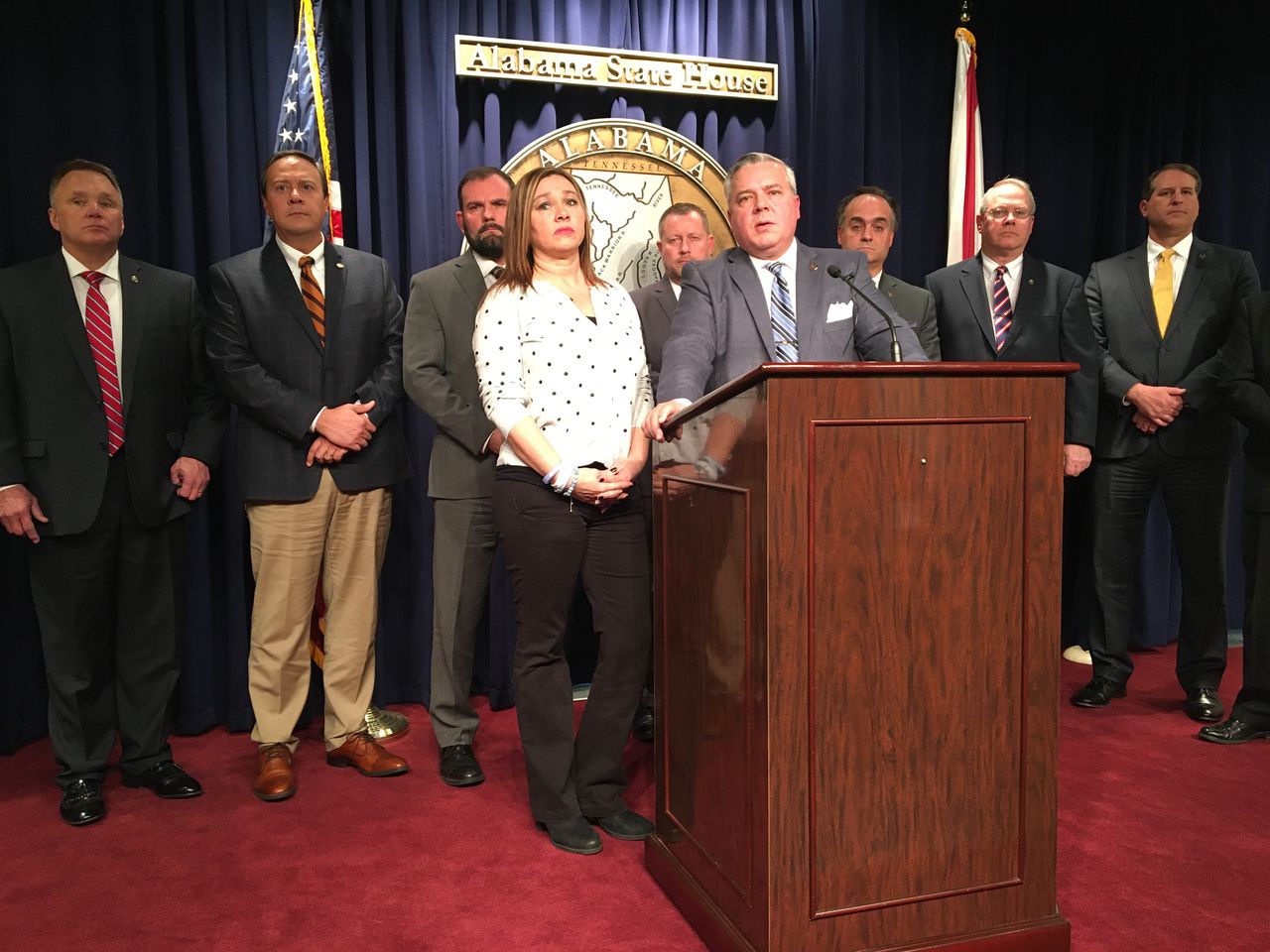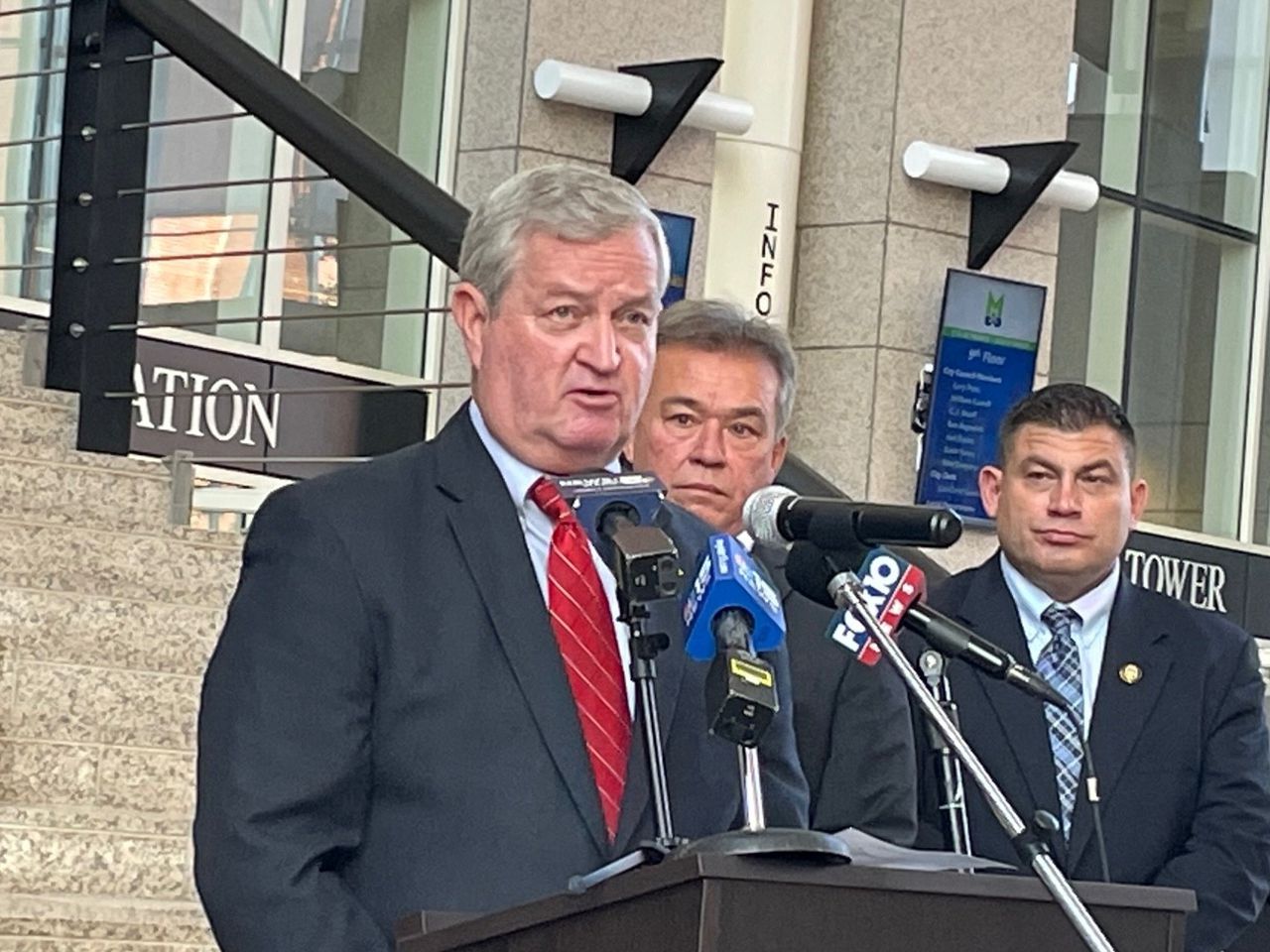Election 2022: Opposition surfaces against Aniah’s Law
If voters approve the “Aniah’s Law” constitutional amendment on the November 8 ballot, it could lead to people who are not convicted of a crime “languishing in Alabama’s jails for years at a time,” a representative with the Montgomery-based Southern Poverty Law Center said Wednesday.
“With the back log we see in our courts, that will be further exacerbated,” said Jerome Dees, policy director for the SPLC in Alabama. “We could have individuals stuck in jail for years at a time and ultimately not found guilty. They are innocent the day they are charged but still could be in jail for months and years.”
Related:
The comments from Dees represents the first time an organization is recommending a “No” vote on Amendment 1 – otherwise known as Aniah’s Law – during the November 8 general election.
His comments also come as mayors, district attorneys, sheriffs, state lawmakers, police chiefs and more are gathering for news conferences throughout the state in a pre-election push to get the amendment approved.
In short, the amendment gives a judge the ability to revoke bail for an expanded list of criminal charges.
“Citizens call my office and say to us every day ‘what can we do to help fight violent crime in our community?’” said Mobile County District Attorney Ashley Rich, while advocating support for the amendment, during a news conference Wednesday at Government Plaza.
“‘What can we do to stop the revolving door of committing crimes?’” she added. “This is a tool and is a way citizens can become involved to help us by voting ‘Yes.’”
Bail changes
If approved, Amendment 1 would change Section 16 of the Alabama State Constitution, which concerns the right to bail – a right covered under the 8th Amendment to the U.S. Constitution – to add a list of serious crimes other than capital offenses for which a defendant can be held without bail.
Section 16 says people who are charged with a crime, excluding capital offenses, have the right to bail, and that bail cannot be excessive.
Amendment 1 would add the following charges to those in which bail can be withheld: Murder, kidnapping in the first degree, rape in the first degree, sodomy in the first degree, sexual torture, domestic violence in the first degree, human trafficking in the first degree, burglary in the first degree, arson in the first degree, robbery in the first degree, terrorism, and aggravated abuse of a child under 6.
The proposed amendment is named after Aniah Blanchard, the 19-year-old college student from Homewood who was abducted from a convenience store in Auburn in October 2019. Her body was found dead a month later in rural Macon County.
The man charged in Blanchard’s kidnapping and murder had been released from jail on a $280,000 bond after he was charged with kidnapping, robbery, and attempted murder from a January 2019 incident in Montgomery.
“What happened to Aniah is an absolute travesty,” said Dees. “But what we see is money bail doesn’t make Alabama communities any safer. We currently have thousands of individuals languishing in municipal and county jails for lesser charged offenses simply for the basis that they don’t have the money to post bond and cannot get out.”
Overcrowded jails
Dees said he is worried about “possible consequences” if Aniah’s Law is passed, such as jail overcrowding and creating a potentially dangerous situation that currently plagues Alabama’s state prison system.
“This amendment is a solution that is going to create more problems for Alabama’s criminal legal system,” Dees said.
In Mobile, officials say they do not believe the passage of Aniah’s Law will lead to overcrowded jails.
Rich said in her 12-year career as the county’s top prosecutor, she has not been in a situation where the Mobile County Sheriff’s Office recommended that there were too many people in jail.
“He has never once tried to impede a prosecutor or a judge to putting someone in jail that needed to be in jail,” Rich said.
Mobile County Sheriff Sam Cochran speaks during a news conference in support of “Aniah’s Law,” a constitutional amendment on the General Election ballot during a news conference on Wednesday, November 2, 2022, at Government Plaza in downtown Mobile, Ala. In the background are James Barber, chief of staff to Mobile Mayor Sandy Stimpson; and Mobile Police Chief Paul Prine. (John Sharp/[email protected])
Sheriff Sam Cochran anticipated that jail overcrowding will not be a concern.
“So many times, we get a phone call with a question, ‘Why was that person on the street with that kind of record?’” Cochran said. “We (tell them that) we’re asking the same question. It’s out of our hands. That’s prompted all this action to be taken.”
He added, “We’ve never turned them away and won’t turn them away in the future.”
Excessive bail
Alabama, if it enacts Aniah’s Law, will join 22 states that have similar measures allowing judges to hold defendants without bond after a pretrial hearing. Louisiana, Florida, Texas, and Mississippi are among them.
Alabama is currently like 19 states that allows a judge to set conditions of bail for every defendant not accused of a capital crime. Other states include Tennessee, Arkansas, Kentucky, and Indiana.
“My hope is if Aniah’s Law is passed next week, the state legislature will take up bail reform and look at the system as a whole,” Dees said. “The one thing we can all agree on is that this is not working.”
According to a recent analysis by the left-leaning Center for American Progress (CAP), altering the cash bail system nationwide is a strategy by politicians to demonstrate they are taking a tough-on-crime stance as violent crime rises nationwide since the COVID-19 pandemic.
The analysis also states that the number of people incarcerated pretrial has increased a whopping 433% from 1970-2015, almost entirely due to increases in cash bail – the amount of money a judge assigns to a person that must be paid to secure his or her release. A majority of those cases are for nonviolent offenses.
The CAP argument claims that because of excessive cash bail, “hundreds of thousands of people are incarcerated each year” due to a lack of money. And according to the Prison Policy Institute, 75% of people held by jails are legally innocent and awaiting trial often because they are too poor to make bail.
Dees said he is concerned there is also no provision in the amendment implementing time frames for establishing a trial date or other court proceedings.
Amendment’s support

Angela Harris, mother of slain college student Aniah Blanchard, stands with state Rep. Chip Brown of Mobile and other Alabama lawmakers to support a proposed constitutional amendment that would give judges more leeway in denying bail to those accused of certain violent crimes. (Mike Cason/[email protected])
But Aniah’s Law appears to be headed for passage. Sparse polling in Alabama ahead of next week’s election suggest that Alabama’s constitutional amendments are likely headed for approval, even with a wide swath of the electorate unsure about them.
A Cygnal poll conducted for Alabama Daily News and Gray Television shows 66.6% of voters planning to approve it, while only 12.3% who say they will vote “No.” Another 21% say they are unsure.
Dees said he is concerned the general public is not going to be “fully aware” of the “full ramifications of this amendment and the likely unintended consequences” if it passes as expected.
But Dees said he is unaware of any additional organizations coming out to oppose the amendment. No news conferences have been held or press statements released by any other civil rights groups advocating for a “No” vote.
Mobile Mayor Sandy Stimpson said he was unaware of an organized opposition against the amendment. He, along with the state’s big-city mayors, have pushed for its passage as an answer toward preventing violent crime.
Birmingham and Mobile have been grappling with a post-pandemic rise in homicides, largely due to a rise in gun-related violence.
“Since 2019, we’ve met almost every quarter and we brainstormed on the things we can do to make Alabama safer,” Stimpson said, referring to the frequent meetings he has with the mayors of the 10 largest cities in Alabama. “We concur that this one vote you have … on voting for Amendment 1, is the most important thing you can do.”
Supporters of the amendment also note that it has bipartisan support. Legislation that allowed for the amendment sponsored by Rep. Chip Brown, R-Mobile, passed both the Alabama House and Senate without a dissenting vote.
